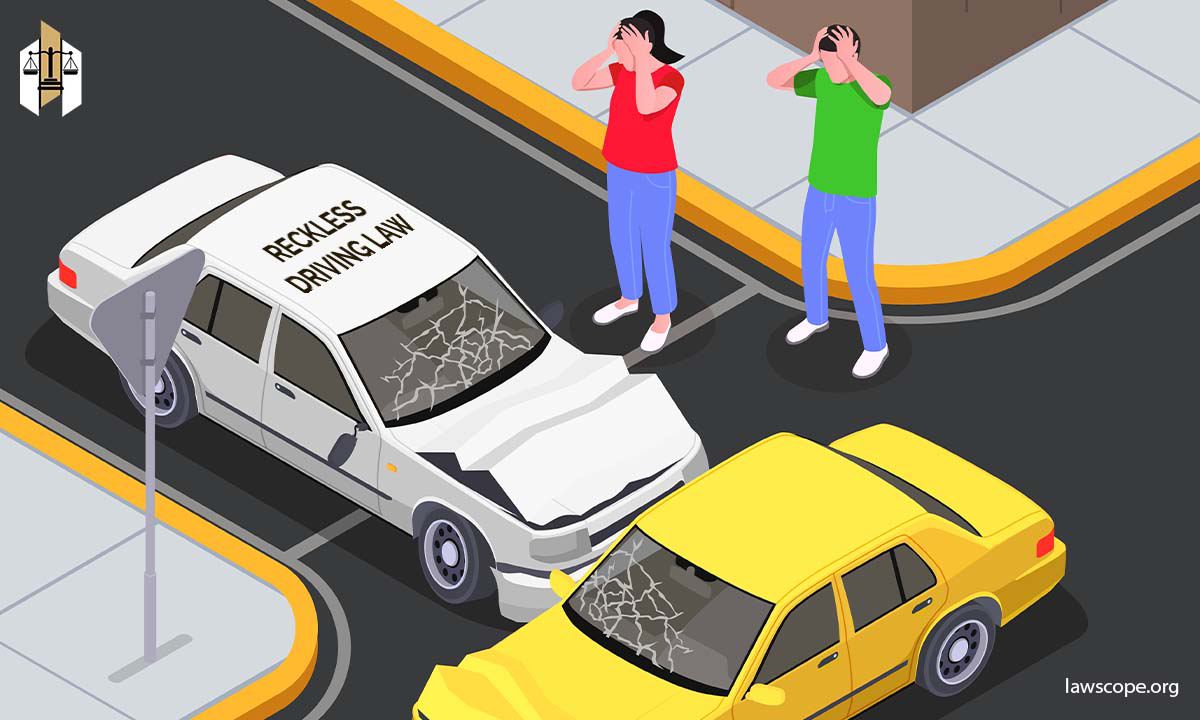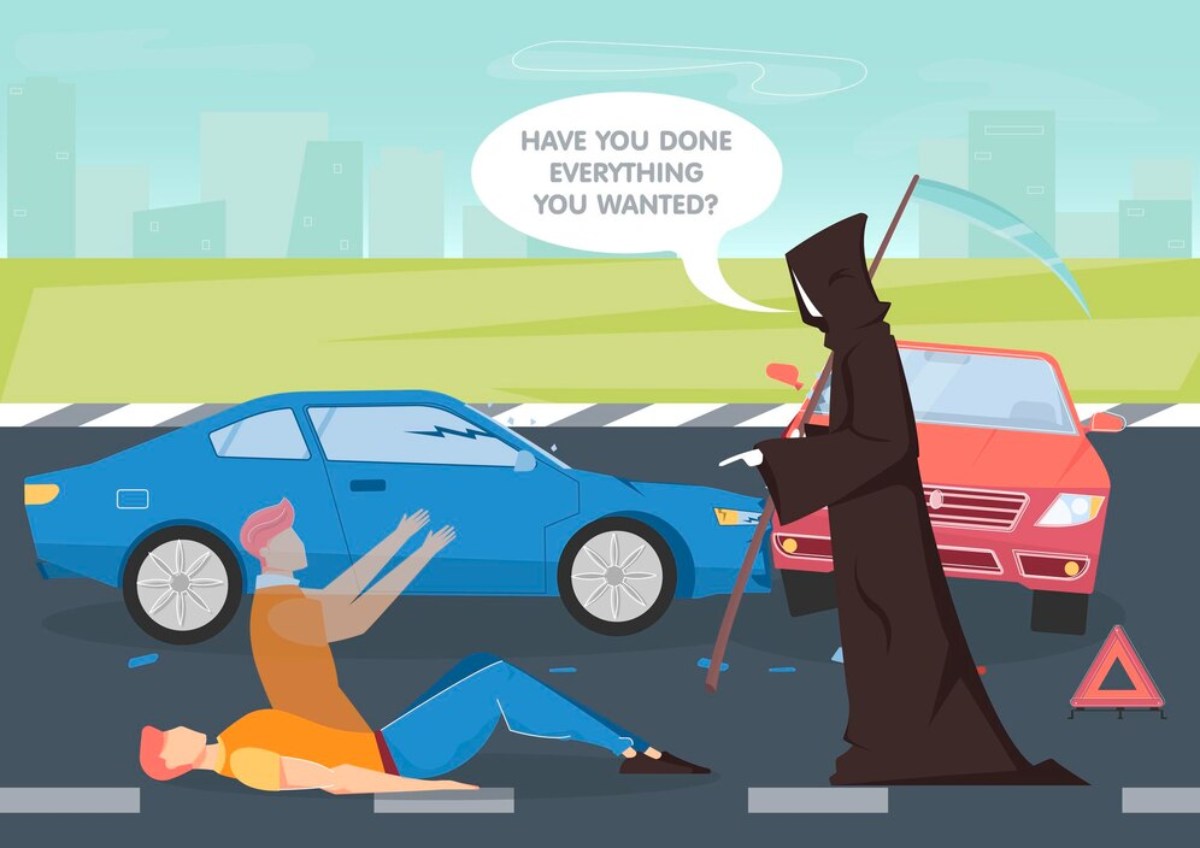
In the realm of traffic regulations, one law that stands out for its severity and broad application is the Virginia reckless driving law.
This law, unlike many others, does not merely impose fines or points on a driver’s licence but carries the potential for significant criminal penalties, including jail time.
Reckless driving in Virginia is not just a traffic infraction, it’s a criminal offence.
This means that the stakes are much higher than for a typical speeding ticket or other traffic violation.
The Virginia reckless driving law is designed to deter dangerous driving behaviours and maintain safety on the roads.
In this blog, we will delve into the specifics of the Virginia reckless driving law, its implications, and its enforcement. We aim to provide a comprehensive understanding of this law, its potential consequences, and how it impacts drivers in Virginia.
Understanding The Virginia Reckless Driving Law

To fully comprehend the Virginia reckless driving law, it’s essential to understand what constitutes reckless driving in the state.
Reckless driving is broadly defined as operating a vehicle in a manner that endangers the life, limb, or property of others.
This can encompass a wide range of behaviours, from excessive speeding to racing other vehicles on public highways.
The Virginia reckless driving law is codified in Virginia Code 46.2-852, which states, “Regardless of the maximum speeds permitted by law, any person who drives a vehicle on any highway recklessly or at a speed or in a manner such as to endanger the life, limb, or property of any person shall be guilty of reckless driving.”
However, the law doesn’t stop there. Virginia has specific laws for various forms of reckless driving, such as failing to yield right-of-way, passing a stopped school bus, and even failing to use signals.
Each of these behaviours is considered reckless driving under Virginia law.
In the next section, we will explore the penalties associated with reckless driving under the Virginia reckless driving law.
Penalties Associated With The Virginia Reckless Driving Law

The penalties associated with the Virginia reckless driving law are severe, reflecting the seriousness with which the state views these offences.
Under Virginia Code Section 46.2-868, a person convicted of reckless driving is guilty of a Class 1 misdemeanour. This is the most serious class of misdemeanour in Virginia and carries significant penalties.
If convicted, a driver could face up to 12 months in jail, a fine of up to $2,500, or both.
Additionally, the court may suspend the driver’s licence for a period not to exceed six months.
In certain circumstances, such as when the driver’s reckless driving causes the death of another person, the offence may be elevated to a Class 6 felony, which carries even more severe penalties.
It’s also important to note that a reckless driving conviction adds six demerit points to the driver’s Virginia driving record and remains there for 11 years.
This can lead to increased insurance premiums and other negative consequences.
In the next section, we will discuss how one can defend against a charge under the Virginia reckless driving law.
Defending Against a Reckless Driving Charge in Virginia

Defending against a charge under the Virginia reckless driving law can be a complex process, given the severity of the potential penalties.
It’s crucial to understand that each case is unique, and the defence strategy should be tailored to the specific circumstances of the alleged offence.
Common defences often involve challenging the accuracy of the speed detection device, questioning the validity of the officer’s observations, or arguing that the driving behaviour was justified due to an emergency situation.
In some cases, it may also be possible to negotiate a plea to a lesser offence, such as improper driving, which carries less severe penalties.
However, given the serious nature of a reckless driving charge, it’s highly recommended to seek legal representation.
A skilled attorney can navigate the complexities of the Virginia reckless driving law, ensuring that your rights are protected and that you have the best possible defence.
While the Virginia reckless driving law is strict, it’s important to remember that it’s designed to keep the roads safe for everyone.
Related Content: Reckless Driving Law in USA: Penalties & Prevention Tips
FAQ (Frequently Asked Questions)
I believe after going through this article you get a deep understanding of the topic.
Now here are some commonly asked questions that you might also have in your head.
So, let’s explore them.
Q1. Does Oregon Have a Reckless Driving Law?
Yes, Oregon has a reckless driving law. Under Oregon Revised Statutes 811.140, a person commits the offence of reckless driving if they drive a vehicle recklessly in a manner that endangers the safety of persons or property.
Reckless driving is a Class A misdemeanour in Oregon, and penalties can include up to a year in jail, a fine of up to $6,250, and licence suspension.
Q2. How Does Ohio Law Determine Reckless Driving?
In Ohio, a person can be convicted of “reckless operation” (also called “reckless driving”) for operating a vehicle “in willful or wanton disregard of the safety of persons or property.
The penalties for reckless driving in Ohio depend on the driver’s record. For a first offence, reckless operation is a minor misdemeanour with a maximum punishment of a $100 fine.
Q3. What Are The Reckless Driving Laws of Portage, WI?
In Wisconsin, including Portage, reckless driving is defined as operating a vehicle in a way that endangers or is likely to endanger people or property.
Penalties for reckless driving in Wisconsin can include fines ranging from $50 to $400 for a first offence, and up to $1,000 for subsequent offences.
In addition, a driver could face up to six years in prison and $10,000 in fines if someone is seriously injured in a reckless driving crash.
Q4. What is The Reckless Driving Law in VA?
In Virginia, reckless driving is considered a serious criminal offence. Under Virginia Code 46.2-862, anyone driving in Virginia is guilty of Reckless Driving when operating a motor vehicle either at a speed of 20 MPH or more in excess of the applicable maximum speed limit, or at a speed of more than 85 MPH, regardless of the applicable maximum speed limit.
Reckless driving is a Class 1 misdemeanour in Virginia, with potential penalties including six DMV points, a fine of $2,500, a jail sentence of 12 months, and a licence suspension of up to six months.
Q5. What is The Law For Reckless Driving in VA?
Virginia Code 46.2-852 governs reckless driving. It declares that, regardless of the maximum speeds authorised by law, any person who drives a vehicle on any roadway carelessly, at a speed, or in a manner that endangers the life, limb, or property of any person is guilty of reckless driving.
In Virginia, reckless driving penalties can include a $2,500 fine, up to 12 months in prison, and a six-month licence suspension.
Related Content: What Is Reckless Driving in California? Understanding Laws and Penalties
Conclusion
In conclusion, the Virginia reckless driving law serves as a stern reminder of the responsibility that comes with the privilege of driving.
It underscores the state’s commitment to ensuring the safety of all road users by imposing severe penalties for reckless behaviours.
Understanding these laws is not just about avoiding penalties; it’s about fostering a culture of safe and responsible driving.
As we navigate the roads of Virginia, let’s remember that every decision we make behind the wheel can have far-reaching consequences. Stay informed, drive responsibly, and remember, the life you save may be your own.
Remember, knowledge is power, and in this case, the knowledge of the Virginia reckless driving law can be the key to safer roads and a safer Virginia.
Drive safe!
You May Like Also:


